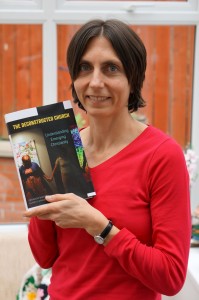
The review is offered by Ryan Burge of Eastern Illinois University. I have reproduced some excerpts below. You also can access the (full) review on my academia.edu profile.
The Deconstructed Church, reviewed by Ryan Burge
While the Emergent Church Movement (ECM) has existed in some form for over 15 years, there have been few social scientists who have taken up the task of understanding the movement in earnest. The Deconstructed Church stands as a thorough and comprehensive execution of this difficult task. This work does a masterful of job of describing coherently a religious phenomenon that denies a common theology, goes out of its way in resisting definition, and consistently affirms that it has no leadership structure. The book is anchored in its thesis, “the ECM is a discernible, transnational group who share a religious orientation built on a continual practice of deconstruction” (p. 6). This thesis provides the backbone for each chapter as Marti and Ganiel document a group of individuals resisting previous religious structures to provide a safe haven for individuals disillusioned by traditional Christianity (both from mainline and evangelical traditions). A good summary of the overall approach of the book can be found in Chapter 2, “Pluralist Congregations.” In it the authors provide a brief but comprehensive description of the ECM as a religious movement that is focused on religious relativism, radical community, and equipping believers to live missional lives in their local community.
… One of the true strengths of this book is that it manages to avoid a number of pitfalls that could derail such an effort. Most notably, it does not spend too much time focusing on the postmodern philosophy that undergirds the ECM. While undoubtedly the works of Derrida and others are important to understanding how emergents view the idea of absolute truth, the focus of emergent Christianity is orthopraxy (right action) as opposed to orthodoxy (right belief). This focus on action is evidenced in the structure of the book, which devotes an entire chapter to “Following Jesus in the Real World,” a description of how emergents alter their politics, career choices, and lifestyles in order to more accurately reflect how they view religious devotion. The Deconstructed Church does an excellent job of both introducing the ECM to those who are unfamiliar with the movement as well as providing insights to those who have been observing the movement for a longer period of time.
… Another tremendous benefit to those who are not from a social science background is the writing style of the authors. Oftentimes, academics who study a popular culture movement fill pages with terse, scientific writing that is largely inaccessible to the average reader. However, I was delighted to see that Marti and Ganiel have an approach that is precise but accessible to a wider audience. What aids this accessibility is a focus on interviews with people who are members of the ECM. While discussions of strategic religiosity and temporary autonomous zones are undoubtedly important from a social science perspective, reading direct quotes from emergents who discuss their desire to break away from previous forms of religiosity helps to ground abstract theory in concrete evidence.